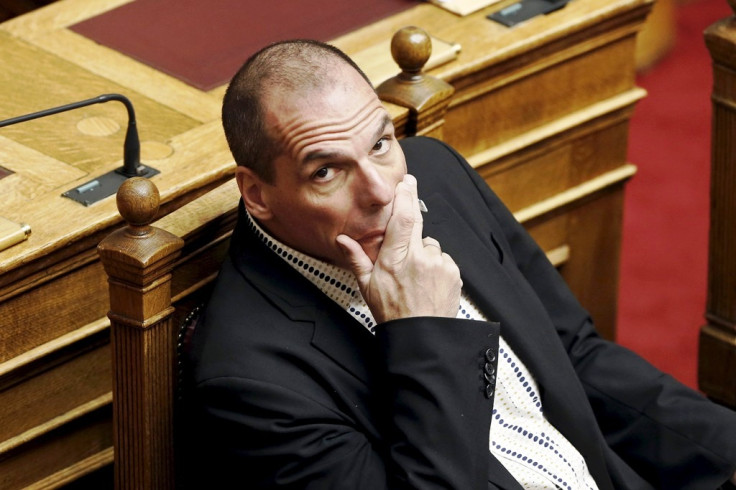Greek crisis: Athens denies telling creditors it will run out of cash on 9 April

Greece's new government has denied it told its creditors it will run out of cash on 9 April.
The news agency Reuters reported that Greece told its creditors it will run out of funds on 9 April, in an appeal to get more funds before economic reforms begin. But the call for money was rejected, eurozone officials told Reuters.
The finance ministry said it "categorically denies an anonymous report by Reuters on issues which were supposedly discussed during the Euro Working Group on April 1".
A payment of about €450m (£330m, $490m) to the IMF, due next week, is the next financial test for Athens.
Eurozone deputy finance ministers and the institutions representing the creditors are to hold further talks on Greece on 8 April, but a deal may not be reached by then.
Athens has submitted an updated list of economic reforms to the European Union (EU) in an effort to secure emergency financing and avoid a default.
The reforms include proposals to raise revenue by curbing tax evasion and corruption.
EU officials confirmed the new reforms list published by the Financial Times was genuine, but that it still needed work.
Contentious call
The appeal for financial aid was reportedly made on 1 April, during a teleconference of eurozone deputy finance ministers, arranged to assess how far Greece was from meeting conditions for unlocking new loans.
Reuters reported that the Greek representative said a deal on the reforms must not be a "post mortem" for the country as "there is no way we can go beyond April 9th".
He added that holding off on new loans until a deal with creditors can be struck was unrealistic.
But others on the call, including Germany, reiterated that for Greece to get the remainder of the €240bn bailout Athens will have to agree on the reforms and implement them, and that there was no chance of releasing funds on 9 April.
Eurozone officials reportedly pointed out that Greece could manage its liquidity by tapping funds of various entities in the general government and those of state-owned firms, even if it had to pass laws to do so.
But Greece said that will not be enough to cover both the IMF repayments and its wage and pension obligations in April.
No resolution was reached, regarding what will happen if negotiations drag beyond 9 April.
Minister's remarks
Greece's appeal echoed comments by Interior Minister Nikos Voutsis, who told Germany's Spiegel news magazine that the government may not make the €450m payment to the IMF if it does not receive more financing by 9 April.
Voutsis said Athens will have to choose between repaying the IMF or paying salaries and pensions, and that the nation would choose the latter.
© Copyright IBTimes 2024. All rights reserved.







